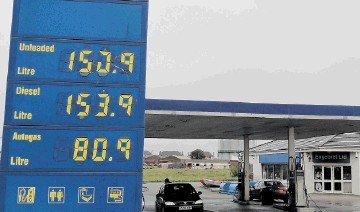
Sharply lower oil prices have also kept a lid on inflation, leaving the central bank in no hurry to raise interest rates above 0.5%, where they have remained for nearly seven years.
Figures from the ONS show the Retail Prices Index measure of inflation remained at 1.3% last month.
The inflation announcement comes after the central bank voted to keep rates on hold again this month and warned that Britain’s vote on its European Union membership could hit UK economic growth.
The Office for Budget Responsibility also slashed its growth forecasts for the UK economy in Chancellor George Osborne’s Budget amid concerns over slowing global growth.
It downgraded its forecast for gross domestic product (GDP) from 2.4% to 2% this year, from 2.5% to 2.2% in 2017, from 2.4% to 2.1% in 2018 and from 2.3% to 2.1% in both 2019 and 2020.
Howard Archer, chief European and UK economist at IHS Economics, said he expected CPI to “hover around 0.3% in the near-term before trending gradually upwards”.
He added: “Much will clearly depend on what happens with oil prices which have strengthened modestly from the 12-year low seen in mid-January.”
Brett Brettell, senior economist at Hargreaves Lansdown, said the trend of inflation remaining close to zero will put little pressure on the central bank to raise rates.
He added: “Policymakers will need to remain mindful of the risk that inflation overshoots the 2% target at some point down the line.
“However, the UK economy is battling a number of significant headwinds at present. Slowing global growth, the upcoming EU referendum, and deflation in the eurozone are creating considerable uncertainty, while wage growth appears much weaker than the peak we saw last summer.”
Recommended for you
